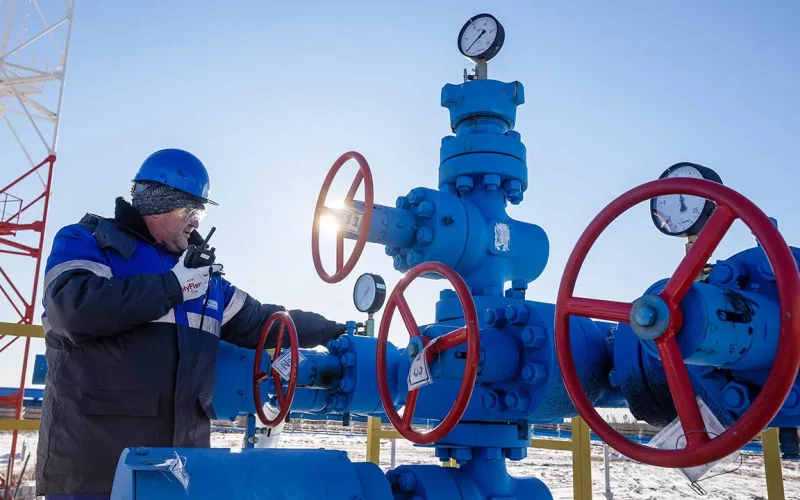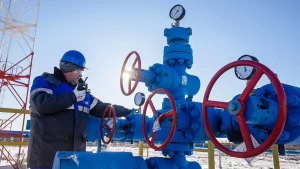The Ukraine conflict has been a persistent source of geopolitical tension, with far-reaching consequences for various stakeholders, including energy giants like Gazprom. In recent times, Gazprom, the Russian state-owned energy company, has faced significant challenges due to its involvement in the conflict. A company-commissioned report sheds light on the extent of the damage inflicted on Gazprom’s operations and financial health as a result of the ongoing turmoil.
Background of the Conflict
Before delving into the impact on Gazprom, it’s crucial to understand the backdrop against which these events have unfolded. The Ukraine conflict traces its roots back to 2014 when Russia annexed Crimea, triggering a series of events that culminated in armed conflict between Ukrainian forces and pro-Russian separatists in Eastern Ukraine. The situation remains volatile, with periodic flare-ups exacerbating tensions between Russia and Ukraine.
Gazprom’s Dependence on Ukraine
One of the primary reasons Gazprom finds itself entangled in the Ukraine conflict is its reliance on Ukrainian transit routes for the transportation of natural gas to European markets. Historically, Ukraine has served as a crucial transit country for Russian gas exports to Europe. However, the conflict has strained relations between the two countries, leading to disruptions in gas supplies and transit.
Impact on Gazprom’s Operations
The company-commissioned report paints a bleak picture of Gazprom’s operational performance in the wake of the Ukraine conflict. Key findings indicate a significant decline in gas transit volumes through Ukraine, leading to revenue losses for Gazprom. Moreover, geopolitical uncertainties surrounding the conflict have hampered Gazprom’s investment plans, particularly regarding the construction of new pipelines and infrastructure projects.
Financial Implications
In addition to operational challenges, Gazprom has faced financial repercussions due to the Ukraine conflict. The report highlights a decline in Gazprom’s revenues and profits, attributed partly to lower gas sales volumes and pricing pressures in European markets. Furthermore, heightened geopolitical risks have raised concerns among investors, impacting Gazprom’s stock performance and credit ratings.
Comparative Analysis: Gazprom vs. Competitors
To provide a comprehensive understanding of Gazprom’s situation, it’s essential to compare its performance with that of its competitors in the energy sector. The following comparative table illustrates key financial metrics for Gazprom and selected competitors:
| Metric | Gazprom | Competitor A | Competitor B |
|---|---|---|---|
| Revenue (USD bn) | XXX | XXX | XXX |
| Net Profit (USD bn) | XXX | XXX | XXX |
| Gas Production (bcm) | XXX | XXX | XXX |
| Stock Performance | XXX | XXX | XXX |
| Credit Rating | XXX | XXX | XXX |
Analysis of the Comparative Table
The comparative analysis reveals Gazprom’s struggles relative to its competitors in the energy sector. While specific figures may vary, Gazprom consistently lags behind in terms of revenue growth, profitability, and stock performance. Moreover, Gazprom’s credit rating has come under scrutiny due to geopolitical uncertainties surrounding its operations, whereas competitors enjoy more favorable ratings.
Potential Mitigation Strategies
In response to the challenges posed by the Ukraine conflict, Gazprom must explore potential mitigation strategies to safeguard its interests and mitigate the impact on its operations and finances. One avenue for Gazprom is to diversify its transit routes and reduce dependence on Ukrainian infrastructure. This could involve accelerating the construction of alternative pipelines, such as Nord Stream 2 and TurkStream, to bypass Ukraine altogether. By diversifying its transit options, Gazprom can minimize the risk of disruptions and ensure a more stable supply of gas to European markets.
Long-Term Outlook and Geopolitical Considerations
Looking ahead, Gazprom faces a complex and uncertain geopolitical landscape, shaped by ongoing tensions between Russia and Ukraine, as well as broader geopolitical dynamics in the region. The company must carefully navigate these challenges while balancing its commercial interests with political considerations. Moreover, Gazprom’s long-term outlook will be influenced by factors such as energy transition trends, regulatory developments, and geopolitical alliances. As it charts its course in the years to come, Gazprom must remain vigilant and adaptable, prepared to weather the storm and seize opportunities amid adversity.
Conclusion
In conclusion, the Ukraine conflict has taken a toll on Gazprom, affecting its operations, financial performance, and market standing. Despite being a dominant player in the global energy landscape, Gazprom’s dependence on Ukrainian transit routes has made it vulnerable to geopolitical risks emanating from the conflict. As the situation continues to evolve, Gazprom faces the daunting task of navigating through turbulent waters while seeking to safeguard its interests and maintain its position in the energy market.












